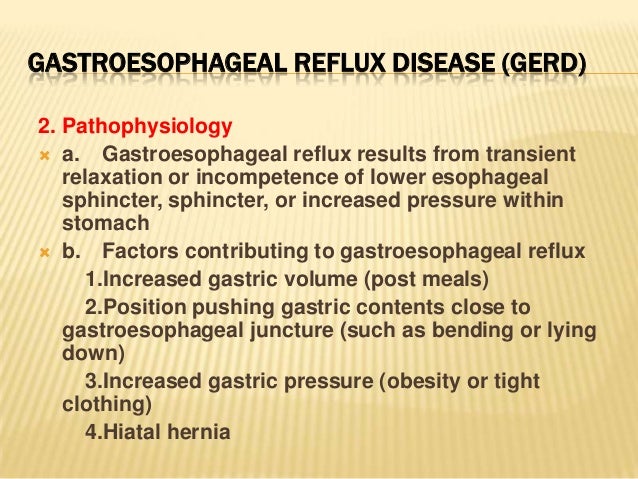Gastroesophageal reflux disease, or gerd, is a digestive disorder that affects the lower esophageal sphincter (les), the ring of muscle between the esophagus and stomachmany people, including. Causes of gerd disease. Gastroesophageal reflux disease (gerd) refers to a condition in which the stomach acid flows back into the esophagus (food pipe) this occurs when the muscles at the end of the esophagus become weak or do not work properly gerd causes severe heartburn and irritates the lining of the esophagus.
causes of gerd disease
One common cause of acid reflux disease is a stomach abnormality called a hiatal hernia, which can occur in people of any age a hiatal hernia happens when the upper part of the stomach and les. Gastroesophageal reflux disease (gerd), also known as acid reflux, is a long-term condition in which stomach contents rise up into the esophagus, resulting in either symptoms or complications. symptoms include the taste of acid in the back of the mouth, heartburn, bad breath, chest pain, regurgitation, breathing problems, and wearing away of the teeth.. The main symptoms of gastro-oesophageal reflux disease (gord) are heartburn and acid reflux. heartburn. heartburn is an uncomfortable burning sensation in the chest. it's usually felt just below your breastbone, but can spread up to the throat in some people. the discomfort is usually worse after eating, or when bending over or lying down..







